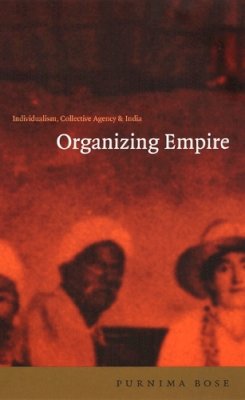
Organizing Empire
Purnima Bose
From a historically grounded, feminist perspective, Bose offers four case studies, each of which illuminates a distinct individualizing rhetorical strategy. She looks at the parliamentary debates on the Amritsar Massacre of 1919, in which several hundred unarmed Indian protesters were killed; Margaret Cousins’s firsthand account of feminist organizing in Ireland and India; Kalpana Dutt’s memoir of the Bengali terrorist movement of the 1930s, which was modeled in part on Irish anticolonial activity; and the popular histories generated by ex-colonial officials and their wives. Bringing to the fore the constraints that colonial domination placed upon agency and activism, Organizing Empire highlights the complexity of the multiple narratives that constitute British colonial history.
Product Details
About Purnima Bose
Reviews for Organizing Empire
Terry Crowley
Canadian Journal of History
"A dense, thoughtful book about individualism and group identity in the colonial era and in the formation of Indian nationalism."
Foreign Affairs
"Bose's multi-sited research lays rich new grounds for complicating issues of documentation and representation as she questions the means by which various agents of struggle can or cannot be recognized within elite-imperial narratives. Bose's Organizing Empire undoubtedly enriches potential sites for postcolonial work, while reconfiguring the geopolitical and historical scopes of subaltern studies."
Lucienne Loh
Interventions
"One of the most noteworthy achievements . . . of the book . . . is the attention that it devotes to the traffic between the different colonies of the British empire, especially Ireland and India. . . . Bose's analysis . . . is assured and persuasive. . . . A sober and useful contribution to studies of empire."
Parama Roy
American Historical Review
